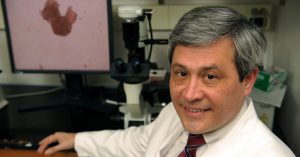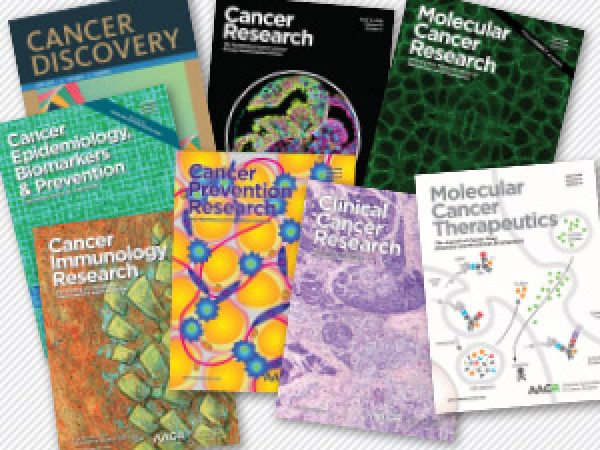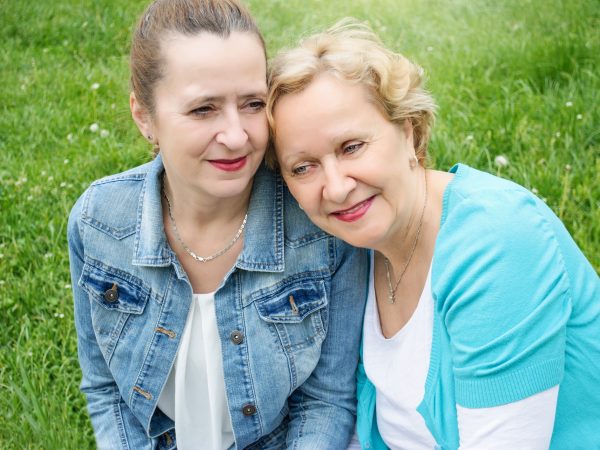SABCS 2016: Co-director Carlos L. Arteaga, MD, Previews Breast Cancer Symposium
About 7,500 attendees from more than 90 countries are expected to convene for the San Antonio Breast Cancer Symposium (SABCS), Dec. 6–10. SABCS is a comprehensive scientific meeting that provides the latest information on prevention, diagnosis, and treatment of breast cancer and premalignant breast disease to various stakeholders in the field, including academic and private physicians and researchers; experts from industry, biotechnology, and regulatory agencies; and patients and patient advocates.
“For the last 38 years, the SABCS has been the largest breast cancer–related meeting in the world,” says symposium co-director Carlos L. Arteaga, MD, Donna S. Hall Chair in Breast Cancer Research and director of the Center for Targeted Therapies and Breast Cancer Program at the Vanderbilt-Ingram Cancer Center in Nashville, Tennessee.
“It is the annual meeting of the breast cancer family to cover the latest clinical and translational research advancements, attracting experts from all over the world, with about 50 percent of the attendees from outside the United States,” he adds.
“Of the nearly 1,600 abstracts sent to the meeting, less than 3 percent make it to podium presentations, meaning everything selected is of high impact for clinical advances,” says Arteaga, who is also Past President of the AACR.
Major meeting themes include:
- Using tumor genomics and precision medicine to develop and test novel drugs in clinical trials;
- Addressing the rising costs of breast cancer drugs;
- Evaluating the optimal length of hormonal therapies to improve outcomes for hormone-positive breast cancer patients.
This year’s meeting also includes forums on global breast cancer health, sessions on regulatory issues surrounding new drug development, basic science symposia, and mentoring sessions aimed at stimulating physician scientists and clinical investigators to focus on laboratory- and clinical trial-based careers, making this a broad and diverse meeting, Arteaga notes.
Also included in this year’s meeting is a session titled, “The Year in Review,” in which four experts will individually provide updates on basic science discoveries; best translational research findings in 2016; advances in early-stage breast cancer treatment; and advances in late-stage breast cancer treatment.
What to expect at the meeting?
According to Arteaga, among the many important studies to be presented at SABCS this year are:
- A precision medicine–based approach to understand the underlying mechanisms of resistance to hormone therapies in metastatic breast cancer, with an eye toward identifying next treatment options and novel drug targets by performing whole exome and transcriptomic sequencing of paired biopsy specimens of primary and treatment-resistant tumors;
- NRG Oncology/NSABP B-42, a randomized, double-blinded, placebo-controlled trial to assess the benefit of extending the adjuvant endocrine therapy letrozole (Femara) for five more years in postmenopausal women with hormone receptor-positive breast cancer who had completed five years of tamoxifen or tamoxifen followed by an aromatase inhibitor;
- BELLE-3, a phase III trial testing a combination of a PI3K-inhibitor, buparlisib, and fulvestrant (Faslodex) in postmenopausal women with hormone receptor–positive, HER2-negative breast cancer previously treated with an aromatase inhibitor that progressed after treatment with an mTOR inhibitor; and
- TEAM IIB, a phase III trial evaluating the benefit of adding the bisphosphonate ibandronate (Boniva) to hormonal therapy in postmenopausal women with hormone receptor–positive early-stage breast cancer.
What’s ahead?
Moving forward, we can expect to see increased use of genomic medicine in identifying actionable vulnerabilities of breast cancers, including those tumors that progress on CDK4/6 inhibitors, and an increasing trend in the use of combinations of hormone therapies and targeted therapies in adjuvant and neo-adjuvant settings, Arteaga predicts.
“We continue to make major advances in the field,” Arteaga says. “However, we cannot ignore that breast cancer continues to be a major cause of death in women; therefore, we have a lot of work to do to further reduce mortality rates as well as improve the quality of life of our patients,” he says.
“Every year, this symposium represents an opportunity to reassert and re-energize our commitment to this cause,” Arteaga notes.




